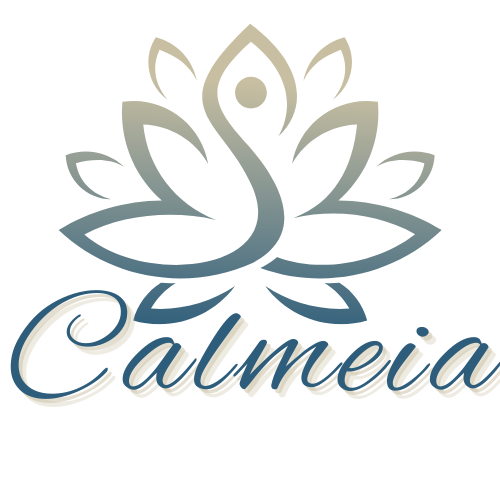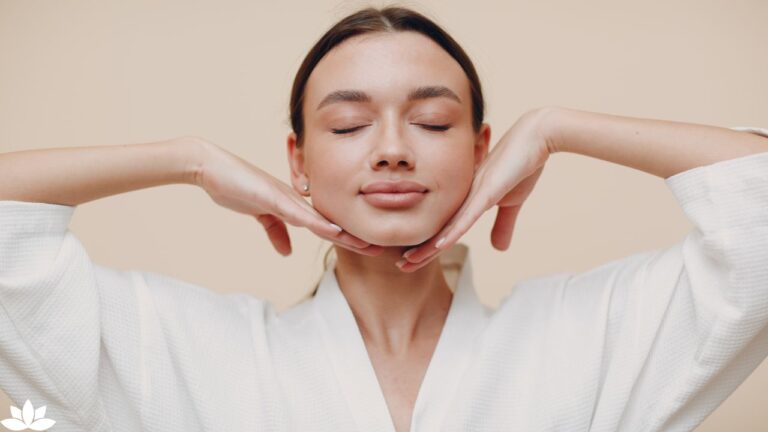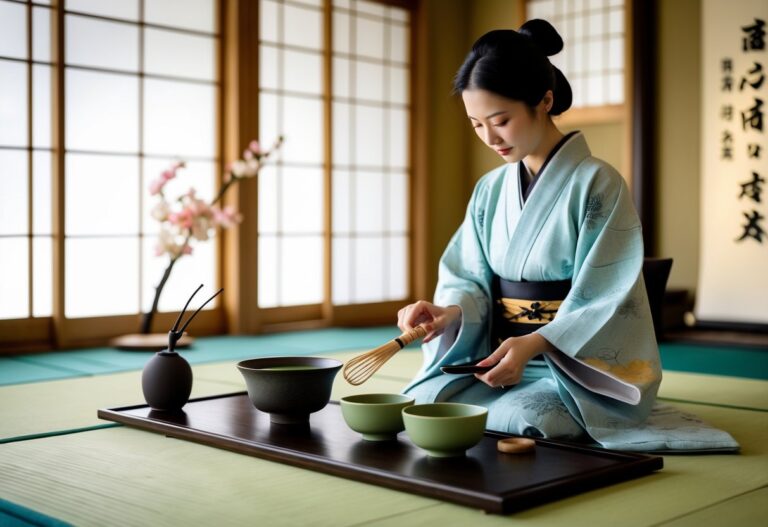Meditation and Mental Health. Hey there! In this fast-paced world of smartphones, constant notifications, and never-ending to-do lists, it’s no surprise that many of us find ourselves dealing with anxiety. But fear not, because we’re about to dive into an exciting journey of how meditation can be your trusted companion in navigating anxiety in the modern world.
So, what’s meditation all about, and why is it crucial in today’s hustle and bustle? Well, meditation isn’t just some mystical practice reserved for monks in secluded monasteries. It’s a versatile tool that’s available to all of us, regardless of our backgrounds or beliefs.
In this article, we’ll explore the diverse landscape of meditation, uncovering various techniques and their unique characteristics. We’ll also delve into the world of modern anxiety, examining the distinctive challenges we face in our tech-driven lives.
But the real magic happens when we start connecting the dots. How can meditation, with its ancient wisdom, help us tackle the unique anxieties of the modern era? That’s the question we’re here to answer.
So, grab a cup of tea, find a comfy spot, and let’s embark on this journey together as we uncover the incredible power of meditation in helping us find calm in the chaos of the modern world.
Meditation – A Diverse Landscape
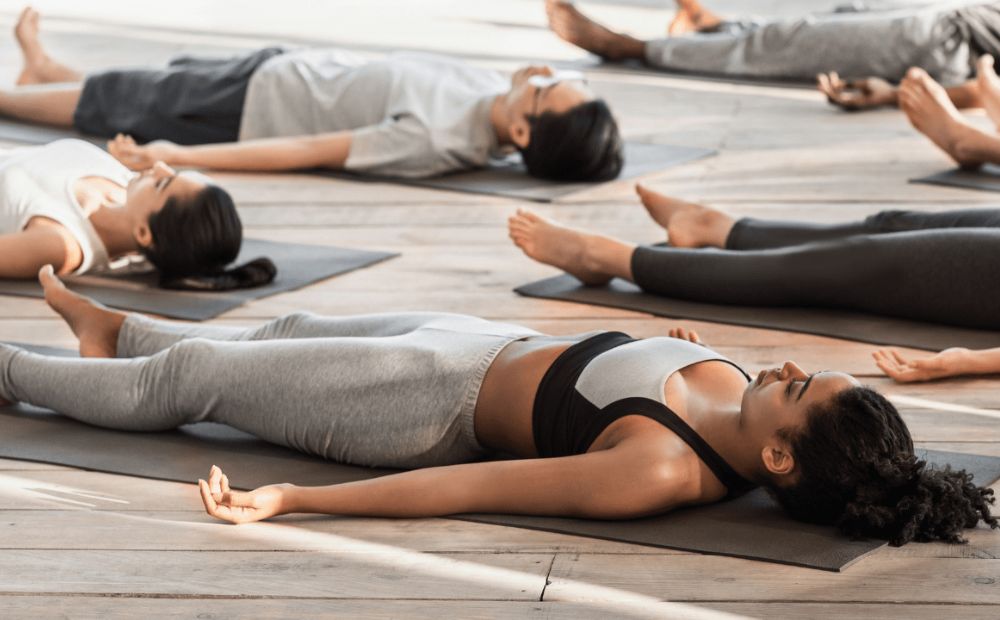
Now that we’ve set the stage, let’s dive deeper into the world of meditation. You might be surprised to learn that it’s not a one-size-fits-all practice. Instead, it’s a rich tapestry of techniques, each with its own unique characteristics and flavors.
A. Overview of Meditation Practices
- Mindfulness Meditation: Mindfulness is all about being fully present in the moment, paying attention to your thoughts, feelings, and sensations without judgment. It’s like training your mind to be an observant, non-critical friend.
- Transcendental Meditation: This technique involves silently repeating a specific mantra to achieve a state of deep restful awareness. It’s often described as a path to inner peace and self-discovery.
- Zen Meditation: Zen takes a minimalist approach, emphasizing simplicity and direct experience. You might picture a serene monk sitting in silence, focusing on the breath or a koan (a puzzling question).
- Vipassana Meditation: Rooted in Buddhism, Vipassana involves a deep exploration of your inner self through self-observation. It’s like peeling away the layers of your mind to reveal your true essence.
- Qi Gong and Native American Practices: These meditation practices draw inspiration from ancient Chinese and Native American traditions, respectively. They often incorporate movements, breathwork, and a connection to nature.
B. Unique Characteristics of Different Meditation Techniques
Each of these meditation practices has its own special qualities:
- Focus and Purpose: They differ in terms of what they emphasize during meditation—whether it’s awareness, stillness, self-discovery, or movement.
- Cultural Influences: The origins of these practices are steeped in rich cultural traditions, from the serene gardens of Japan for Zen to the Himalayan mountains for Vipassana.
- Mantras, Instruments, and Sounds: Some meditation techniques, like Transcendental Meditation, use specific mantras or sounds, while others, such as sound healing, rely on instruments like singing bowls and gongs.
- Integration with Modern Technology: Believe it or not, these ancient practices have seamlessly integrated with the modern world through meditation apps and digital platforms.
In the following sections, we’ll explore how these diverse meditation techniques can be harnessed to tackle the unique challenges of anxiety in our fast-paced, technology-driven lives. So, keep reading, and let’s discover which meditation style resonates most with you!
Mental Health in the Modern World
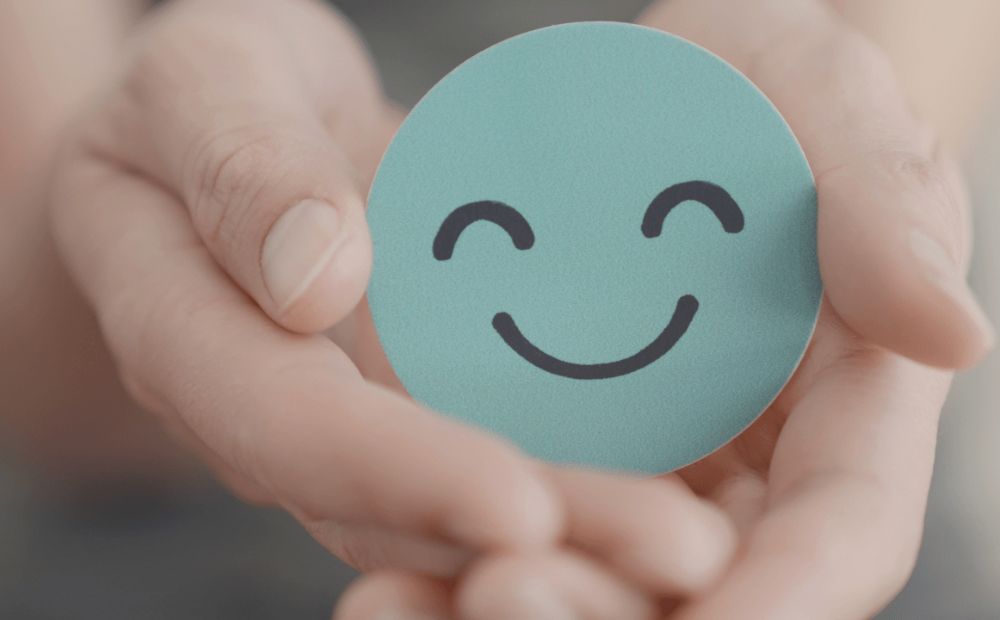
In our fast-paced, technology-dominated world, mental health has taken on a new set of challenges that previous generations couldn’t have imagined. Let’s delve into these unique aspects of mental health in the modern era:
A. Unique Challenges of Modern Life
- Technology-Related Anxiety: Modern gadgets and constant connectivity have given rise to unique anxieties like “nomophobia” (fear of being without your mobile phone) and “cyberchondria” (excessive health-related internet searches). We’re more connected than ever, yet we often feel more disconnected.
- Social Media Impact: Social media platforms have transformed how we connect, but they also bring about “social comparison anxiety.” We constantly compare our lives to the carefully curated highlight reels of others, leading to feelings of inadequacy and envy.
- Work-Related Stressors: The modern workplace has its own unique set of stressors, resulting in “burnout syndrome.” It’s characterized by emotional exhaustion, reduced performance, and an overwhelming sense of being drained by work.
- Environmental Anxiety: Concerns about climate change and the future of our planet have birthed “eco-anxiety.” People experience fear, guilt, or helplessness about environmental issues and their impact on the world.
- Information Overload: The constant influx of information, news, and updates in the digital age can lead to “information overload” or “news fatigue.” Our minds struggle to filter through the endless stream of data, causing stress and overwhelm.
B. The Interplay Between Modern Lifestyle and Mental Health
- Sleep Patterns and Anxiety: Irregular sleep patterns, often exacerbated by late-night screen time, can disrupt our circadian rhythms and contribute to anxiety-related sleep disorders. Quality sleep becomes elusive.
- Sedentary Behavior: Our increasingly sedentary lifestyles, tied to office jobs and screen time, have negative consequences for mental well-being. Lack of physical activity can contribute to feelings of anxiety and depression.
- Diet and Its Impact on Anxiety: Modern diets high in processed foods, sugars, and caffeine can wreak havoc on our mental health. The gut-brain connection means that what we eat can affect our mood and anxiety levels.
Understanding these unique challenges and their impact on our mental health is crucial. In the next section, we’ll explore how meditation can be a powerful tool to navigate these modern anxieties. It’s time to discover how the age-old practice of meditation can help us find balance in our fast-paced, digital world.
The Intersection of Meditation and Mental Health
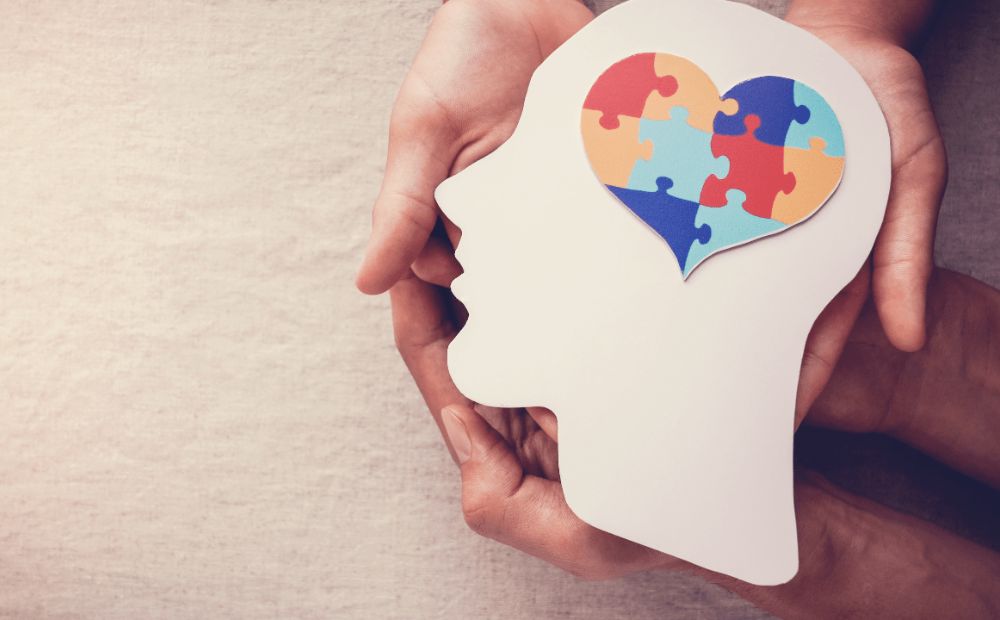
Now that we’ve explored the unique landscape of both meditation and modern mental health challenges, it’s time to uncover how these two intersect to offer solutions for navigating anxiety in the modern world. Let’s dive into the transformative power of meditation on mental well-being:
A. Stress Reduction and Anxiety Management
- How Meditation Reduces Stress Hormones: Meditation, across various techniques, has been shown to reduce the production of stress hormones like cortisol. It’s like your body’s natural stress-release button.
- Mindfulness Meditation for Anxiety: Among the many meditation practices, mindfulness meditation shines in anxiety management. By teaching you to focus on the present moment without judgment, it helps break the cycle of rumination and excessive worrying, common traits of anxiety.
B. Improved Emotional Regulation
- Meditation’s Role in Emotional Control: Meditation enhances your ability to regulate emotions. It’s like turning the volume down on emotional reactivity. You become more capable of responding calmly and rationally to challenging situations.
- Meditation Techniques for Emotional Regulation: Specific meditation techniques, such as loving-kindness meditation, can be particularly effective in cultivating compassion and reducing negative emotions associated with anxiety.
C. Brain Changes and Cognitive Enhancement
- Neuroimaging Studies on Meditation: Cutting-edge research using brain imaging techniques has shown that meditation can lead to structural and functional changes in the brain. It’s like a mental workout that promotes neuroplasticity.
- Meditation’s Impact on Cognitive Functions: Meditation can sharpen cognitive functions such as attention, concentration, and memory. This isn’t just about reducing anxiety; it’s about improving your overall mental toolkit.
D. Sleep Improvement and Anxiety Reduction
- Meditation Practices for Better Sleep: Anxiety often disrupts sleep patterns, leading to insomnia and other sleep disorders. Meditation practices like yoga nidra and progressive muscle relaxation can improve sleep quality, helping you get the rest you need to manage anxiety effectively.
- The Connection Between Sleep and Anxiety: Sleep is a cornerstone of good mental health. Better sleep means better anxiety management. Meditation can help bridge that gap.
The beauty of meditation lies in its adaptability. Whether you’re seeking to reduce stress, regulate emotions, enhance cognition, or improve sleep, there’s a meditation technique that can align with your specific needs and goals. In the next section, we’ll delve into the diverse array of meditation practices and how they can cater to individual preferences and circumstances. So, stay tuned to find your ideal meditation match!
Unique Approaches and Modalities
In this section, we’ll delve into the diversity of meditation practices and explore some unique approaches and modalities that cater to various preferences and needs. From ancient traditions to modern innovations, meditation offers a vast spectrum of options:
A. Cultural and Traditional Aspects of Meditation
- Vipassana and Zen Meditation: These practices provide a deep connection to their respective cultural roots. Vipassana takes you on a journey through Buddhist teachings, while Zen meditation immerses you in Japanese Zen philosophy.
- Qi Gong and Native American Practices: Drawing inspiration from ancient Chinese and Native American traditions, these meditation practices incorporate movements, breathwork, and a profound connection to nature. They offer a unique way to tap into the wisdom of these cultures.
B. Technology-Enhanced Meditation
- Digital Meditation Platforms and Apps: In the digital age, meditation has seamlessly integrated with technology. You can now access guided meditation sessions, mindfulness tools, and relaxation exercises through your smartphone or computer. It’s like having a personal meditation guide at your fingertips.
- Meditation with Sound Healing Instruments: Sound meditation employs instruments like singing bowls, gongs, and crystal bowls to induce deep relaxation and healing. The unique vibrations and harmonics of these instruments can transport you to a place of tranquility and balance.
C. Modern Therapeutic Modalities
- Online Therapy and Telepsychiatry: Modern mental health care has evolved to provide convenient and accessible options. Online therapy and telepsychiatry offer the flexibility to connect with mental health professionals from the comfort of your home. It’s a unique approach to receiving support.
- Integrating Meditation into Clinical Settings: Therapeutic programs like Mindfulness-Based Stress Reduction (MBSR) and Mindfulness-Based Cognitive Therapy (MBCT) have incorporated meditation into clinical practice. These unique approaches combine traditional therapeutic techniques with meditation to address anxiety and other mental health challenges.
The beauty of meditation is that it’s not a one-size-fits-all solution. Whether you’re drawn to the rich cultural traditions, prefer the convenience of digital tools, or seek integration with modern therapy, there’s a meditation modality that aligns with your unique preferences and circumstances.
In the following section, we’ll provide practical tips on how to incorporate meditation into your daily life, making it a sustainable and effective tool for managing anxiety in the modern world. So, let’s continue our exploration of this incredible practice!
Practical Tips for Incorporating Meditation
Now that we’ve delved into the diverse world of meditation and its unique characteristics, it’s time to roll up our sleeves and explore how you can integrate meditation into your daily life to effectively manage anxiety. Here are some practical tips and strategies:
A. Choosing the Right Meditation Practice
- Self-Exploration: Start by exploring various meditation techniques. Experiment with different practices, from mindfulness to loving-kindness, and determine which resonates most with you. It’s a bit like trying on different outfits until you find the one that fits perfectly.
- Guided Sessions: Utilize guided meditation sessions, either through mobile apps or online resources, to get a feel for different approaches. These guided sessions can provide structure and guidance as you begin your meditation journey.
B. Integrating Meditation into Daily Life
- Consistency is Key: Establish a regular meditation routine. Dedicate a specific time each day, even if it’s just a few minutes, to meditate. Consistency will help you experience the full benefits of meditation.
- Create a Sacred Space: Designate a quiet, comfortable space for meditation. Whether it’s a cozy corner in your home or a serene spot in nature, having a dedicated space can enhance your practice.
- Start Small: If you’re new to meditation, start with short sessions and gradually increase the duration as you become more comfortable. It’s like building mental muscle over time.
- Mindful Moments: Incorporate mindfulness into your daily activities. Practice being present during routine tasks like eating, walking, or even washing dishes. These mini-meditations can be incredibly grounding.
- Breath Awareness: Use your breath as an anchor. Whenever you feel overwhelmed or anxious, take a few deep breaths to center yourself. It’s a simple but effective way to regain composure.
C. Combining Meditation with Other Anxiety Management Strategies
- Holistic Approach: Recognize that meditation is just one piece of the puzzle. Combining it with other anxiety management strategies, such as exercise, a balanced diet, and adequate sleep, creates a holistic approach to well-being.
- Professional Guidance: If your anxiety is severe or persistent, consider seeking professional guidance from a therapist or counselor. They can help you integrate meditation into a comprehensive treatment plan.
- Community Support: Join meditation groups or communities, either in person or online. Sharing your experiences and learning from others can provide valuable insights and motivation.
Remember, meditation is a skill that improves with practice. Be patient with yourself and embrace the journey. Over time, you’ll discover how meditation can become a powerful tool for managing anxiety in the modern world.
In the concluding section, we’ll summarize the key takeaways and emphasize the importance of incorporating meditation into your life as a means of finding calm amidst the chaos of the modern era. So, stay with us as we wrap up our exploration!
Conclusion
As we reach the end of our journey through the world of meditation and mental health in the modern era, let’s recap the key takeaways and emphasize the significance of incorporating meditation into your life for navigating anxiety:
- Diverse Meditation Landscape: Meditation is a rich tapestry of practices, each with its unique characteristics and benefits. From mindfulness to ancient traditions, there’s a meditation style to suit every individual.
- Modern Mental Health Challenges: The modern world presents unique challenges to mental health, including technology-related anxiety, social media impact, work-related stressors, environmental concerns, and information overload.
- The Intersection of Meditation and Mental Health: Meditation offers a holistic approach to managing these modern anxieties. It reduces stress, enhances emotional regulation, promotes brain changes, and improves sleep quality.
- Unique Approaches and Modalities: Meditation encompasses a wide array of approaches, from culturally rooted practices to digital platforms and sound healing instruments. Modern therapeutic modalities integrate meditation into clinical settings, offering tailored solutions.
- Practical Tips for Incorporating Meditation: To make meditation a sustainable part of your life, choose the right practice, establish a routine, create a dedicated space, and start with small steps. Combine meditation with other anxiety management strategies for a holistic approach.
- Personal Growth: Through meditation, you can embark on a journey of self-discovery, emotional resilience, and cognitive enhancement. It’s not just about reducing anxiety; it’s about personal growth and well-being.
- Community and Professional Support: Consider joining meditation communities or seeking professional guidance when needed. Both can provide valuable resources and support along your meditation journey.
In conclusion, meditation isn’t an ancient relic; it’s a powerful tool for navigating the challenges of the modern world. It offers a path to finding calm, balance, and peace in a world filled with noise and chaos. By incorporating meditation into your daily life, you embark on a transformative journey toward better mental health and well-being.
So, whether you’re seeking serenity in the midst of technology’s whirlwind, a way to manage the pressures of work, or a means to connect with your inner self, meditation is here to guide you. Embrace this age-old practice as your ally in the modern world, and let it empower you to navigate anxiety with grace and resilience.
Resources and Further Exploration
Now that you’ve embarked on this journey to explore meditation and its role in managing anxiety in the modern world, it’s important to have access to resources that can help you deepen your understanding and practice. Here are some recommendations for further exploration:
A. Books on Meditation and Mental Health
- “The Miracle of Mindfulness” by Thich Nhat Hanh: A classic book that introduces mindfulness meditation in a simple and accessible way.
- “The Relaxation Response” by Herbert Benson: Dr. Benson explores how meditation and relaxation techniques can have a profound impact on stress reduction and mental health.
- “Radical Acceptance” by Tara Brach: This book combines meditation practices with psychology to address self-judgment and anxiety.
- “The Science of Meditation” by Daniel Goleman and Richard J. Davidson: Delve into the scientific research behind meditation and its effects on the brain.
B. Meditation Apps and Online Platforms
- Headspace: A popular meditation app offering guided sessions on various topics, including anxiety management.
- Insight Timer: A diverse platform with thousands of free meditation sessions, music, and talks from experienced teachers.
- Calm: Known for its soothing nature sounds and guided meditations, Calm is designed to reduce stress and anxiety.
- YouTube: Explore the vast library of meditation and mindfulness content available for free on YouTube. Many experienced teachers and meditation guides share their wisdom and practices.
C. Local Meditation Centers and Classes
Consider exploring meditation centers or classes in your local area. Many communities offer group meditation sessions led by experienced instructors. This can be an excellent way to connect with others and deepen your practice.
D. Mental Health Professionals
If you’re dealing with severe or persistent anxiety, don’t hesitate to seek support from mental health professionals. They can provide personalized guidance, therapy, and strategies to manage your anxiety effectively.
E. Online Communities and Forums
Join online communities and forums dedicated to meditation and mental health. These platforms offer a space to share experiences, ask questions, and find support from like-minded individuals.
Remember that your meditation journey is unique to you. There’s no right or wrong way to practice, and it’s perfectly normal to encounter challenges along the way. The most important thing is to start where you are, be consistent, and be kind to yourself as you explore this transformative path.
As you continue to explore meditation and its benefits for mental health, you’re taking a proactive step toward greater well-being in the modern world. Embrace the resources available to you, stay curious, and enjoy the ongoing journey of self-discovery and inner peace.
